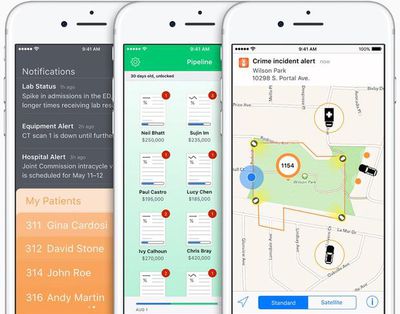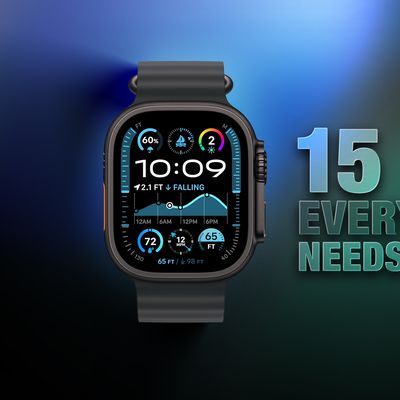IBM announced at its "World of Watson" event in Las Vegas on Tuesday that it intends to combine the cognitive computing technology with its MobileFirst for iOS enterprise apps.
Watson is the company's cloud-based deep data analytics and natural language processing framework, which has previously seen limited use in secure cloud and analytics services for enterprise versions of Apple's HealthKit and ResearchKit apps.

Apple and IBM first collaborated on the MobileFirst for iOS initiative in 2014 in an attempt to create business solutions built around Apple's mobile platform. By rolling out Watson to the MobileFirst program, IBM hopes to tailor Watson to integrate seamlessly with Apple's own speech framework and allow business users to develop Watson APIs for their own specific needs.
General manager of IBM's Apple partnership Mahmoud Naghshineh, described the vision ahead for the two companies in a press release.
"Apple and IBM set out more than two years ago to define the enterprise mobility market, ensuring that professionals could finally enjoy at work the same experience they'd come to expect as consumers. We are taking that to a whole new level by combining the power of Watson with the new speech framework of iOS 10. The combinations and possibilities are virtually endless."
One example of the benefits of the integration is the Passenger + app, which when enhanced with Watson allows flight attendants to deliver more personal and relevant customer care while inflight: staff can learn in advance whether travelers prefer priority seating and if they have a favorite snack or beverage, for example, allowing cabin crew to customize services tailored for the passenger.
Under the continuing partnership with Apple, IBM has been selling iOS devices to corporate customers and creating a wide range of enterprise-focused apps tailored to industries like retail, healthcare, banking, travel, transportation, and more.
In related news, last week it was revealed that IBM had managed to make serious savings by replacing PCs with Macs across its staff base, in another sign of the two companies' mutually beneficial partnership.
IBM began adopting Macs for its employees in mid-2015, quickly becoming one of Apple's largest corporate customers. In the first year, it deployed approximately 30,000 Macs, and with employees continuing to choose Macs over PCs, IBM now has 90,000 deployed Macs supported by five admins.





















Top Rated Comments
It's the more difficult of the two options without a doubt; though by constraining what boundaries you have to work with and not taking the easy path will vastly benefit speech recognition. It means that almost anybody will eventually be able to utilise the technology without training the application, or requiring personalisation/cached information to work effectively.
I believe Apple are playing the long game once again, much as they were with their own chips. We won't immediately see the benefits, but we'll look back with hindsight and applaud their decision. I'm very excited to see what the next 5 years will bring us.
Watson and Siri qre married ?